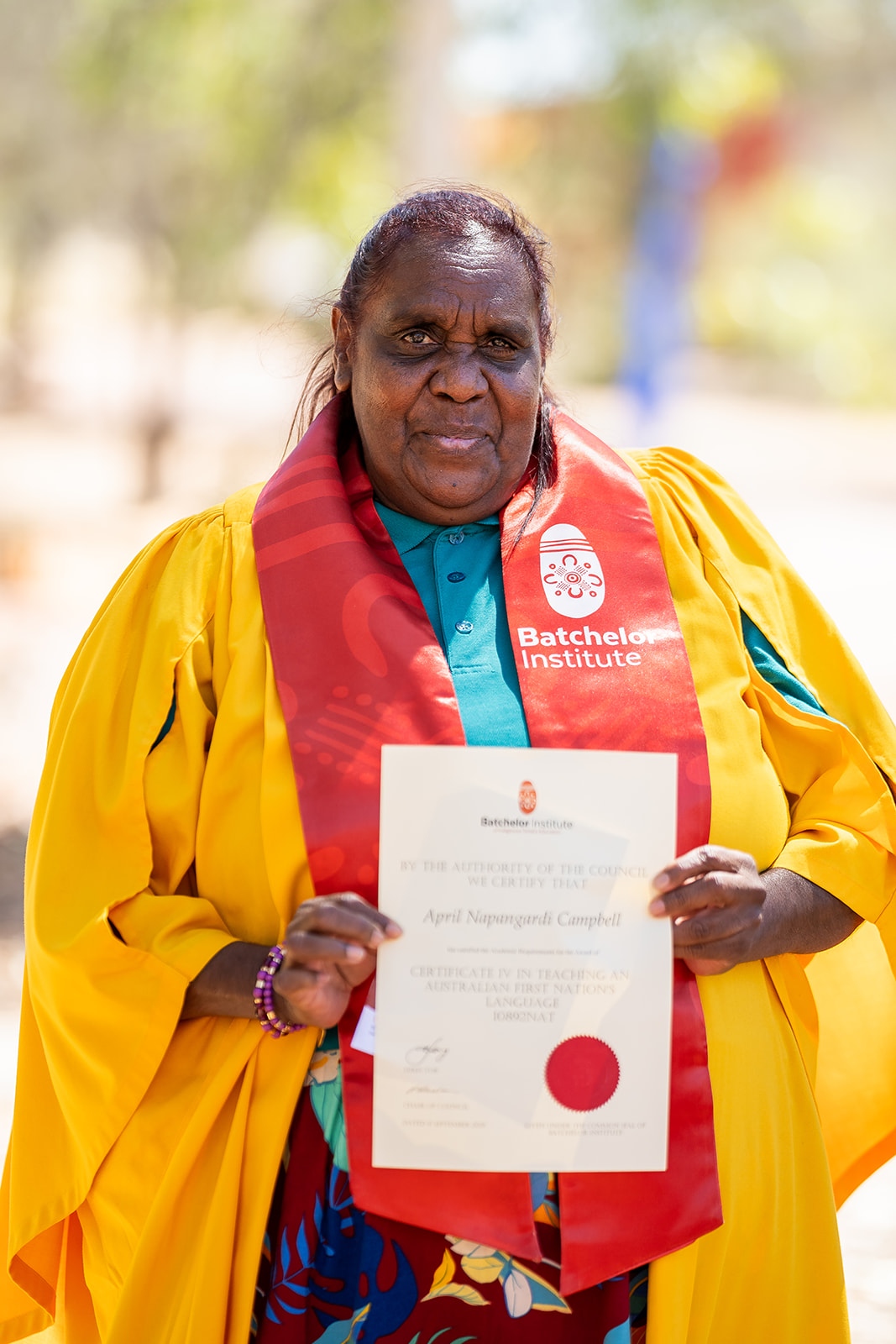
Celebrating Resilience at the Batchelor Institute 2025 Desert Peoples Campus Graduation
(Mparntwe) Alice Springs, NT – Batchelor Institute of Indigenous Tertiary Education is thrilled to announce the 2025 Graduation Ceremony at its Desert Peoples Campus, where 74 exceptional graduands will be awarded their qualifications, embodying the Institute's "Both Ways" approach that integrates Indigenous knowledge with contemporary education to strengthen First Nations communities.
Scheduled for September 11, 2025, the ceremony celebrates graduates from 24 suburbs and communities, with notable representation from Alice Springs (18 awards), Tennant Creek (14), and Larapinta (5). The cohort features a gender balance of 62% female (45) and 38% male (28), highlighting the pivotal role of Indigenous women in advancing education, health, and cultural preservation.
A standout story is that of April Pengart Campbell, an Anmatyerr woman from Ti Tree Community, who will graduate with a Certificate IV in Teaching an Australian First Nation’s Language. April's journey, spanning over three decades, exemplifies perseverance and the profound impact of culturally responsive education.
"My name is April Pengart Campbell, and I’m an Anmatyerr woman. I live in Ti Tree Community. In 1971 I went to school at Ti Tree. It was made up of seven silver bullet caravans. We only learned in English, we didn't have language and culture programs at this school. It was so challenging for me to learn a second language," said April. "Today I graduate after first enrolling in 1989, 26 years ago. I have travelled to many places to share my knowledge and to teach beyond my own school. I have written songs with children in two languages at Ti Tree during Mob Fest. I have taken this to Sydney Conservatorium of Music in a cultural exchange with their students. I started cultural exchanges with our sister schools Meridan and Trinity Colleges. Today I am proud of myself. I am a role model for our children and for our community too. I am a very proud and happy person today and what means most is to show my community and family it can be done."

Reflecting on her achievement, April added: "I really want to thank and acknowledge my Elders, my family and the Ti Tree school and the community. They walked with me and guided me through my studies. Also a big thanks to my Batchelor lecturers for the workshops and the support to study."
April's achievement aligns with the ceremony's statistics, where four graduates are earning the Certificate IV in Teaching an Australian First Nation’s Language, part of a diverse array of qualifications. Certificate III level courses lead with 34 awards, including Certificate III in Civil Construction Plant Operations (13) and Certificate III in Early Childhood Education and Care (12). Other highlights include Certificate I (14 awards), Certificate IV (12), Certificate II (10), and Diploma (4), with courses like Certificate III in Learning an Australian First Nation’s Language (3) emphasizing cultural heritage.
